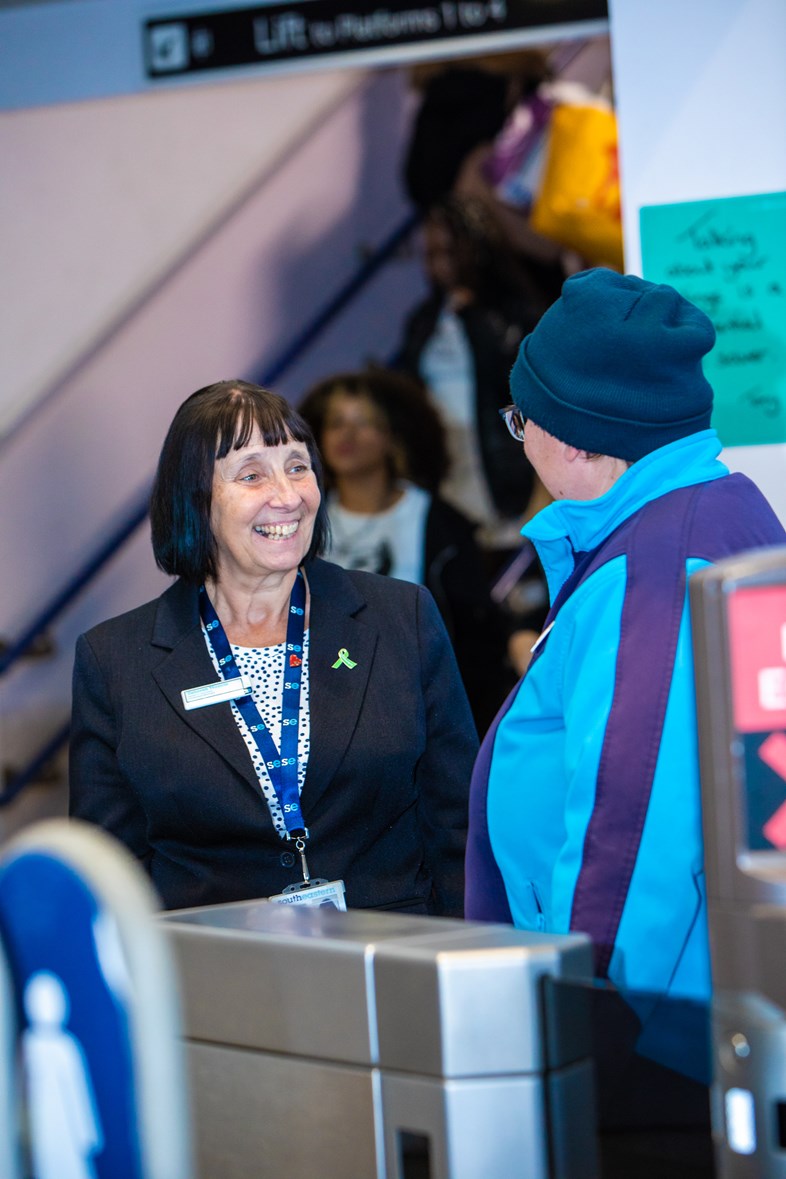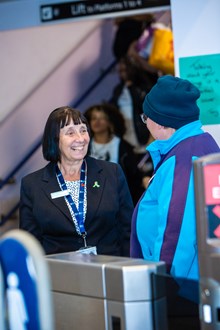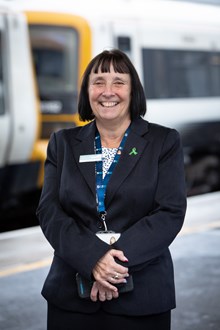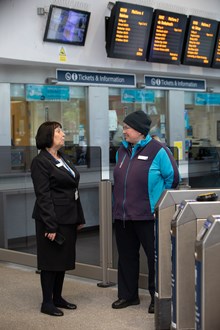World Menopause Day 2022 takes place today (Tuesday, 18 October) and with Southeastern having more than 500 female employees aged 40 or above, their menopause policy plays an important role in educating both men and women.
Maureen Dominey, Chair of the Women's Network Group at Southeastern, said: “We were ahead of the curve when we launched our menopause policy in 2019. In fact, we were the first train operating company to launch a Menopause in the Workplace programme. Part of the challenge was to remove the taboo around the menopause. It’s a life-changing experience that affects half the population so we should be talking about it.”
Southeastern worked with Henpicked, a specialist organisation supporting women over 40, to deliver menopause awareness training to every manager within the business. They developed guides and a toolkit to raise awareness of the issues associated with the menopause, and to offer advice on how to address them effectively and sympathetically.
The programme was developed following feedback from Southeastern’s Women in Rail Empowerment (WIRE) colleague network group which highlighted that many colleagues lacked awareness and didn’t feel comfortable discussing the menopause.
Maureen continued: “The awareness sessions were very well received and improved everyone’s understanding of what the issues are and what managers could do to support people, being more understanding and aware of how the menopause can impact those going through it, as well as how it affects those around them.
“We feel strongly about breaking down taboos and encouraging a workplace that allows people to be the best they can be. We know our programme has helped some of our female colleagues identify their own symptoms and get appropriate medical support, understand more about their female family members and have a more supportive and open environment in which to work.”
As a menopause friendly employer, in 2021 Southeastern reviewed all of its policies and guidance, offered free menopause support packs and a webinar, in partnership with other train operating companies.
Southeastern is continuing to encourage colleagues to highlight physical and psychological symptoms, offering practical help to continue succeeding at work. The company has also twice been named ‘A Great Place to Work’ by the National Rail Awards for its female-friendly policies.
Case study: When the menopause strikes twice
Going through the menopause once can be challenging enough, but some women have to face the life-changing experience twice.
Deborah Thomas, 56, is a Health and Wellbeing Promotions Manager at train operator Southeastern. She first started getting hot flushes 20 years ago – her periods stopped and the night sweats and hair loss began. By the time she was 38, she had been officially diagnosed with early menopause. She was offered hormone replacement therapy (HRT) but as her mother had had breast cancer, she knew there were additional risks and initially chose not to pursue that route.
However, the night sweats became too much to bear and Deborah suffered from insomnia, often managing no more than an hour of sleep a night. She was also suffering with brain fog, which meant she struggled to remember dates of meetings, where she was going and what she was going to say next. She was prescribed a minimal dose of HRT for just two years which helped with both the hot flushes and night sweats.
Deborah explained: “I’m grateful I was able to try HRT but I knew that my family history meant I wouldn’t be able to rely on it for long. At that time, the information available on menopause was much scarcer but I did my own research and found some things helped. I invested in silk sheets and pyjamas, which are much better at regulating body temperature, and tried various shampoos. I also avoided white wine and spicy foods and started going to the gym.
“My colleagues at the time had to become used to me rushing out of the office as hot flushes overwhelmed me from the feet upwards. They were understanding but the menopause still wasn’t something that was openly discussed at work. I was lucky as I’ve never experienced mood swings, but the physical effects were enough to cope with.”
When Deborah reached the age of 47, her symptoms subsided, and the hot flushes became more of a warm glow. It seemed the menopause was over but just three years later, the hot flushes returned.
“This time I knew what was coming but that didn’t make it any easier,” said Deborah. “What had changed was my employer and the general attitude to talking about menopause in the workplace. In the last few years, it has become much more commonplace for both men and women to discuss how it affects them, something I see in my everyday job during health and wellbeing conversations.”
Southeastern introduced its menopause policy in 2019. The company supports both managers and colleagues with comprehensive menopause guides, briefings and toolkits. Working with Henpicked, an organisation that leads the way in menopause in the workplace, menopause awareness training was offered to every manager within the business, helping to remove the taboo for both men and women.
Deborah continued: “The change in policy really opened the floodgates for people to have those conversations that would have been considered impossible just a few years before – it was an essential thing that needed to happen. Now managers are much more aware of what some women are going through which allows them to be more supportive and make adjustments accordingly.
“For example, women’s uniforms have been altered to help them cope with hot flushes and others – myself included – have been allowed to change our working patterns. Usually, my day starts at 6am as I don’t sleep well, although obviously when I’m attending events that does change a little.
“Having an understanding employer and a workplace where menopause is openly discussed can make all the difference to how you’re able to cope with the symptoms. I think train operators are considered traditionally male dominated companies, but we want to get the message out there that this is a great place to work for both men and women.”
ENDS



